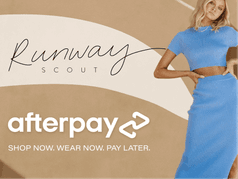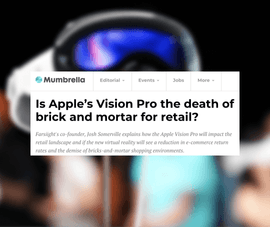
Meta Ads Agency
Our team of adaptable Meta Ads specialists focus on leveraging creative strategy to move the needle in our partners growth.
Producing real business outcomes
farsiight is a results-oriented Meta Ads Agency that generates tangible business outcomes. Our team is deeply committed to helping brands in maximise their revenue and profitability, allowing them to expand their positive impact.
Our Approach
Meta Ads is evolving rapidly, with constant changes to placements, policies, tracking and targeting. Is your brand embracing the new game and staying ahead in the ever-changing Meta Ads landscape?
Frequently Asked Questions
Meta Ads refer to advertising campaigns and strategies conducted on meta platforms, which includes Facebook Ads, Instagram Ads, Marketplace Ads, Messenger Ads and more. This type of advertising is also referred to as "push marketing" as you are advertising to users who are not actively searching for your product or service.
Using Meta Ads offers a tonne of benefits, including precise targeting options, access to a large audience, flexible ad formats, real-time campaign performance tracking, and the ability to reach users across multiple devices and platforms. Meta Ads caters for all campaign objectives, like raising brand awareness, driving user engagement, website traffic or performance based objectives like sales and leads which we typically focus on.
Meta Ads provide various targeting options, including demographic targeting (age, gender, location), interest-based targeting, custom audience targeting (based on your existing customer data or website traffic like retargeting), and lookalike audience targeting which is reaching audiences similar to your existing customers or list that you've specified. Post iOS14.5, we find that broader audiences that are larger in size perform better for performance based objectives. Let Meta optimise towards high-intent users by focusing on optimising for purchasers or users who have submitted lead forms.
Meta Ads platforms provide robust analytics and reporting tools to measure the success of your campaigns. Key metrics to consider include impressions, clicks, click-through rate (CTR), conversion rate, cost per acquisition (CPA), return on ad spend (ROAS), and engagement metrics such as likes, comments, and shares. However, performance based signals are no longer as trust-worth as they used to be due to iOS14.5 and users opting out of tracking. Therefore, we recommend ensuring you track how the business is performing first, before adjusting your marketing strategy. Lead-gen businesses should focus on acquisition cost (CAC) and e-commerce on marketing efficiency ratio (MER) to determine how the business is performing.
Yes, each Meta Ads has its own set of advertising policies and guidelines that advertisers must adhere to. It sounds boring because it is but it's vital that you familiarise yourself with the policies that relate to your category before advertising. Meta is very strict as they want to ensure their users have a good experience on the platform and are quick to ban advertisers quickly. If you are banned, it's really hard to undo this. These policies typically cover areas such as prohibited content, ad formatting, targeting restrictions, and community standards.
Level up your marketing game with Insiights
Check out our blog for impactful industry insights and actionable marketing tactics that you can use to grow your brand.
Our Services
We believe those that claim to do everything do nothing exceptional. (*Cough* full service agencies). farsiight is a specialist performance marketing and creative house and we’re damn proud of it. Check out our specialist services below.
Performance Creative
Performance Creative
We fuse data, creativity and behavioural psychology into ad creatives that separate brands from the crowd and scale ad accounts.
Paid Social Advertising
Paid Social Advertising
We rank among the top percentile of agencies in Australia in terms of advertising spend across major social media platforms.
PPC Marketing
PPC Marketing
Our winning PPC Marketing strategies have been acquired through spending over $100m on the leading pay-per-click ad platforms.
Creative Strategy
Creative Strategy
A creative strategy that starts with a hypothesis informed by data is the key to designing ad creatives that produce tremendous results.
Digital Strategy
Digital Strategy
Strategy before tactics, period. Bolting down an airtight digital strategy is essential to achieving sustained success from your performance campaigns.







